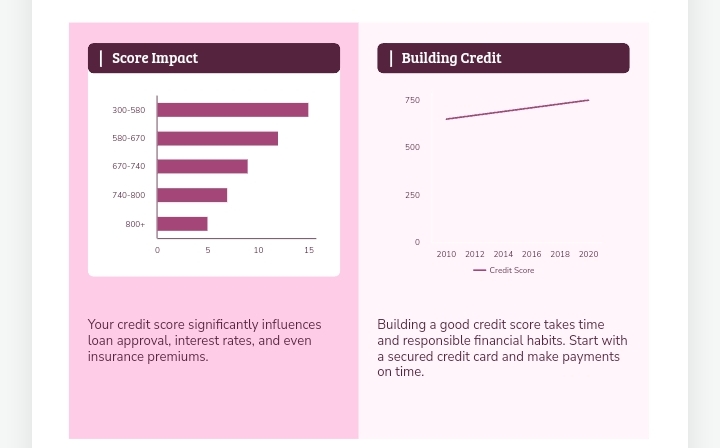Your credit score is a key factor in whether you’ll qualify for loans and what terms you’ll receive. But what exactly is a credit score, and how can you improve it?
In this guide, we’ll break down everything you need to know about understanding, checking, and fixing your credit score in Nigeria.
What is a credit score?
A credit score is a 3-digit number ranging from 300 to 850 the higher the credit score the lower the risk of customer default in payment.
Its used by lenders to determine the creditworthiness of loan applicant
Credit score rankings
| A | B | C | |
| 1 | Credit Score Range | Credit Rating | Meaning |
| 2 | 720-850 | Excellent | Low risk of default. |
| 3 | 660-719 | Good | Low risk of default, but may require higher interest rates. |
| 4 | 600-659 | Fair | Increased risk of default, may face difficulty getting loans. |
| 5 | Below 599 | Poor | High risk of default, may be denied loans or offered high-interest rates. |
A credit report is a breakdown of your credit history. You are advised to to review closely and understand the factors affecting your score.
Key Components of a Credit Report
Your credit report typically contains:

- Personal Information: Name, address, social security number, etc.
- Credit Accounts: A list of your credit cards, loans, and their balances.
- Credit Inquiries: A record of who has checked your credit.
- Public Records: Any bankruptcies or tax liens.
- Payment History: Details of any missed or late payments.

Key Factors Affecting Credit Score:
- Payment History: Timely payments of loans and credit cards.
- Credit Utilization: Amount of debt compared to available credit limits.
- Length of Credit History: How long you’ve had credit accounts.
- Credit Inquiries: Number of recent requests for credit.
- Types of Credit: Mix of credit types (e.g., loans, credit cards).
How to fix or improve How to Improve Your Credit Score:
Fixing a credit score can take a few months to several years. The main factor that determines early or late fix is severity of the issues and your actions to address them.
Consistent positive behavior will gradually help you to improve your loan credit scores.
- Pay Bills on Time: Consistent and timely payments are crucial.
- Reduce Debt: Lower your credit utilization ratio.
- Limit New Credit Accounts: Avoid opening too many accounts at once.
- Dispute Errors: Correct any inaccuracies on your credit report.
- Monitor Your Credit: Regularly check your credit report for errors.
How to check your Credit Score In Nigeria?
There are two ways to check your credit score in Nigeria.
- By dialing and calling the *565*8#, the next prompt will give you detailed information about your credit score from the Bureau. However, it’s worth noting that this code is limited to MTN users only
- Request a report from an independent licensed credit bureau. However, this can be done only once a month free of charge
However it’s worth noting that credit reports is available to the relevant third parties such as.
- Lenders: Banks, credit unions, and other financial institutions use credit scores to assess borrowers’ creditworthiness.
- Credit Reporting Agencies: Agencies like Equifax, Experian, and TransUnion maintain and provide credit scores to consumers and lenders.
- Insurance Companies: Some insurers use credit scores to help determine premiums for policies.
- CBN’s CRMS
For your information credit scores do affect loan applications. It could be the main reason why your loan application gets rejected.
Having a poor credit score means you have a history of managing credit which raises concerns for lenders.
This history can either be missed payments or high credit utilization. Low credit scores can limit your options to rent a house or even obtain certain jobs.